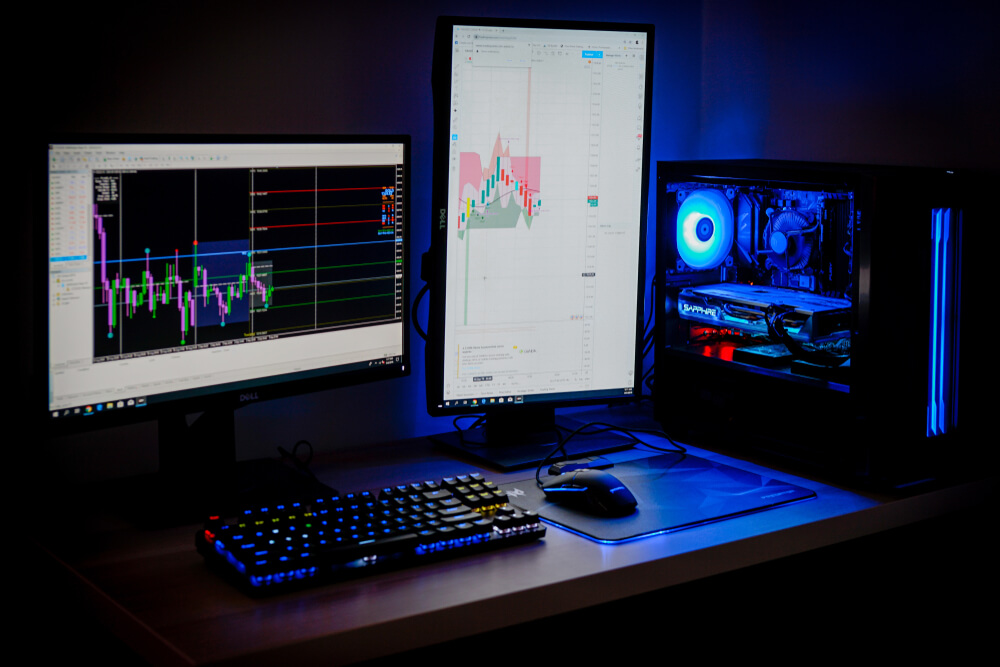Learning how to trade is a long process full of trial and error. There are numerous lessons you need to learn that you can only really pick up along the way. However, going in entirely unprepared means you’ll waste more money attempting and failing things than you need to.
That’s why we’ve decided to make a list of a few essentials you need to pick up before you begin. This is by no means a full guide meant to make you an expert trader, just the bare minimum you need to prevent you from losing too much.
Analysis
Trading going on your gut feeling or following news will let you find some success. However, it won’t take you far if you fail to properly analyze trends and historical performance. You might misconstrue occurrences and make wrong decisions because of a lack of contextual knowledge.
That’s why you need to learn about both primary kinds of analyzing assets; technical and fundamental analysis. And you will need to learn both to become a truly successful trader. Using either without the other is a recipe for overconfidence and failure.
So learn what they are and a few ways to apply both practically before you start. Along the way, you can learn which to rely on more in particular cases, as well as learn new application methods.
Strategy
Building on our previous point, just learning how to trade isn’t going to get you far. Taking a disciplined approach will ensure that you have the longevity you need to become a full-time trader or successful part-timer.
By strategy, we mean ensuring that your whole portfolio and trading process works together. Balance out risky assets with stable investments so that busting out doesn’t leave you without a penny.
Here, you should also determine your orientation and budget. Are you looking for something to accumulate minimal gains over a large period of time? Or are you looking for a shorter but more profitable stretch of investing? Set specific goals, temper your expectations, and plan and learn accordingly.
Budget
A common pitfall for newer traders is that they get hooked and invest (and lose) more than they intend to. Budgeting is a large part of avoiding excessive losses and needs to be done accordingly with your strategy.
For example, if you want to set aside something like $1,000, you won’t really get much from a safe-and-steady strategy. Even if you find an asset that will bring 10% yearly returns (and that’s a long shot), after a year, you will have earned $100. That’s not nothing, but it isn’t something you’d get excited about.
We recommend setting a realistic budget before you start to trade and not going over it. After that, set a timeframe and how much you want to earn (we recommend a modest estimate), and don’t overinvest.
Leverage
This is more of a footnote because it’s not nearly as fundamental as the other things we mentioned. However, leverage trading is extremely dangerous for newer traders, especially with the leverage levels some brokers offer.
You need to be extremely cautious when leveraging trades, as the losses can be massive. For beginners, we recommend staying away from leverage altogether, but if you’re persistent about it, at least stay under 1:10.
Earning a lot with a small investment is an alluring proposition, and it is exciting when it works out. However, the overwhelmingly more common scenario is that it doesn’t work well, handing you devastating financial losses.











